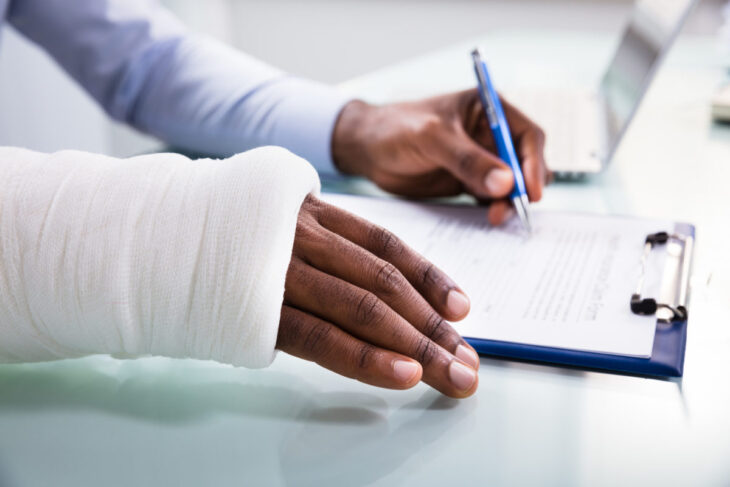Car accidents are an unfortunate reality of modern life. They can be incredibly stressful and disruptive, both physically and financially. When you’re in a car accident, it’s essential to know how to deal with your insurance company, as it can significantly impact the outcome of your claim.
Contents
- Do Consider Hiring an Attorney
- Don’t Admit Fault or Apologize
- Do Notify Your Insurance Company as Soon as Possible
- Do Gather Evidence and Information
- Don’t Accept the First Settlement Offer
- Do Keep a Record of all Communication
- Don’t Sign Anything Without Consulting an Attorney
- Do Seek Medical Attention
- Don’t Provide Too Much Information
- Don’t Assume Your Insurance Company is on Your Side
- Do Review Your Policy Carefully
- Don’t Delay Reporting the Accident
- Do Be Prepared to Negotiate
- Don’t Forget to Follow Up on Your Claim
Do Consider Hiring an Attorney
If you’re involved in a car accident, it may be a good idea to consider hiring an attorney. An attorney can help you navigate the complex process of filing an insurance claim and can also ensure that your rights are protected.
A Personal Injury Lawyer Toronto can also negotiate with coverage companies on your behalf and can represent you in court if necessary.

Source: bencrump.com
Don’t Admit Fault or Apologize
Another crucial thing to keep in mind is that you should never admit fault or apologize after an accident. Even if you believe that you were at fault, it’s essential to avoid admitting it to anyone, including the other driver, passengers, witnesses, or your insurance company.
Admitting fault or apologizing can be used against you in court, and it can also negatively impact your insurance claim.
Do Notify Your Insurance Company as Soon as Possible
One of the most crucial steps to take after an accident is to notify your insurance company as soon as possible. It’s essential to do this even if you believe that the accident was not your fault or that you don’t need to file a claim.
If you wait too long to report the accident, your coverage company may deny your claim, leaving you responsible for the costs of any damages or injuries resulting from the accident.
Do Gather Evidence and Information
After an accident, it’s essential to gather as much evidence and information as possible. This includes taking photos of the accident scene, obtaining the contact information of the other driver and any witnesses, and getting a copy of the police report.
Gathering evidence and information can help you build a strong case for your insurance claim and can also protect you if the other driver tries to blame you for the accident.

Source: themartinezlawfirm.com
Don’t Accept the First Settlement Offer
If you’re involved in an accident, it’s common for the other driver’s coverage company to offer you a settlement quickly. While this may seem like a good idea, it’s crucial to avoid accepting the first settlement offer.
Insurance companies often make lowball settlement offers, hoping that the victim will accept them without realizing the full extent of their damages or injuries.
Do Keep a Record of all Communication
It’s essential to keep a record of all communication with your insurance company and the other driver’s insurance company. This includes phone calls, emails, and any other correspondence.
Keeping a record of all communication can help you track the progress of your claim and can also protect you if there is any dispute or disagreement about the details of the accident.
Don’t Sign Anything Without Consulting an Attorney
If you’re asked to sign anything by your coverage company or the other driver’s insurance company, it’s crucial to avoid doing so without consulting an attorney.
Insurances may try to get you to sign documents that limit your rights or waive your right to pursue legal action. An attorney can help you understand your rights and ensure that you’re not signing anything that could negatively impact your claim.

Source: medium.com
Do Seek Medical Attention
If you’re involved in an accident, it’s essential to seek medical attention immediately, even if you feel fine. Some injuries, such as whiplash or internal injuries, may not be immediately apparent and may worsen over time.
Getting prompt medical attention can not only protect your health but can also strengthen your claim. Medical records can provide evidence of the injuries you sustained in the accident, which can be used to support your claim.
Don’t Provide Too Much Information
When dealing with insurance companies after an accident, it’s important to be cautious about the information you provide. You should avoid providing too much information or volunteering information that is not requested.
Insurance companies may use any information you provide to try to deny or minimize your claim, so it’s important to be careful about what you say.
Don’t Assume Your Insurance Company is on Your Side
While you may assume that your insurance company is on your side, it’s important to remember that their main goal is to minimize their costs. Insurance companies may try to deny or minimize your claim, even if you have a legitimate case.
It’s essential to be vigilant and ensure that you’re being treated fairly throughout the claims process.

Source: finance.zacks.com
Do Review Your Policy Carefully
When filing an insurance claim, it’s important to review your policy carefully to ensure that you understand your coverage and your rights. Knowing the details of your policy can help you make informed decisions about your claim and can also protect you from any surprises later on.
Don’t Delay Reporting the Accident
Delaying reporting the accident to your insurance company can have serious consequences. Your insurance company may deny your claim if you wait too long to report the accident, leaving you responsible for the costs of any damages or injuries resulting from the accident.
It’s essential to report the accident as soon as possible to protect your rights and ensure that your claim is processed promptly.
Do Be Prepared to Negotiate
When dealing with insurance companies, it’s important to be prepared to negotiate. Insurance companies may try to offer lowball settlement offers, but by negotiating, you may be able to get a better settlement that fully covers your damages and injuries.

Source: bencrump.com
Don’t Forget to Follow Up on Your Claim
After filing an insurance claim, it’s important to follow up regularly to ensure that your claim is being processed promptly. If you don’t receive updates or feel that your claim is not being handled properly, don’t hesitate to reach out to your insurance company.
In conclusion, dealing with insurance companies after an accident can be a challenging and stressful experience. By following the dos and don’ts outlined in this article, you can protect your rights and ensure that you receive the compensation you deserve for your damages and injuries. Remember to be cautious, seek medical attention, review your policy, and be prepared to negotiate to get the best possible outcome for your claim.
